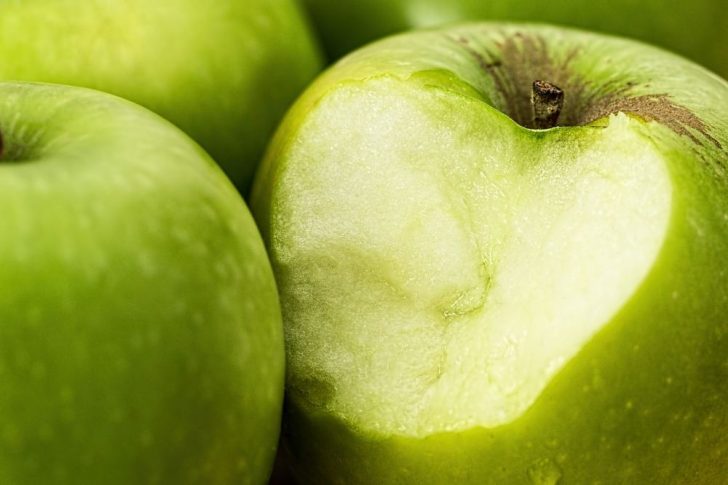PCOS Diet: A Comprehensive Guide to Managing Polycystic Ovary Syndrome

Introduction:
Polycystic Ovary Syndrome (PCOS) is a common hormonal disorder affecting women of reproductive age. It is characterized by irregular periods, excessive hair growth, weight gain, and fertility issues. While there is no cure for PCOS, research suggests that dietary changes can play a significant role in managing its symptoms and improving overall health. In this article, we will provide a detailed overview of the PCOS diet, including its types, popularity, and quantitative measurements. We will also discuss the differences between various PCOS diets and explore their historical advantages and disadvantages.
I. An Overview of PCOS Diet:

The PCOS diet is a dietary approach aimed at managing insulin levels and improving hormonal balance for women with PCOS. This diet focuses on reducing inflammation, managing weight, and optimizing nutrient intake. By making specific food choices, individuals with PCOS can potentially alleviate symptoms and improve their overall well-being.
II. Types and Popularity of PCOS Diet:
1. Low Glycemic Index (GI) Diet:
The low GI diet is a popular choice among women with PCOS. It involves consuming foods that have a minimal impact on blood sugar levels, thus preventing insulin spikes. This diet typically emphasizes whole grains, lean proteins, healthy fats, and a variety of fruits and vegetables.
2. Mediterranean Diet:
Inspired by the traditional eating patterns of Mediterranean countries, this diet promotes the consumption of whole, unprocessed foods. It includes a high intake of fruits, vegetables, legumes, nuts, and seeds, and moderate consumption of fish, poultry, and dairy products. The Mediterranean diet has gained popularity due to its potential positive impact on insulin resistance and inflammation, common issues in PCOS.
3. Low-carbohydrate Diet:
A low-carbohydrate diet focuses on minimizing the intake of carbohydrates, which can help control blood sugar levels and reduce insulin resistance. This diet encourages the consumption of proteins, healthy fats, and non-starchy vegetables while limiting or avoiding high-carbohydrate foods such as refined grains, sugary beverages, and processed snacks.
III. Quantitative Measurements of PCOS Diet:
1. Caloric Intake:
Maintaining a calorie balance is crucial for managing weight and optimizing hormonal balance in PCOS. While individual calorie requirements may vary, it is typically recommended to consume an appropriate number of calories to maintain a healthy weight.
2. Macronutrient Ratios:
Balancing macronutrients, including carbohydrates, proteins, and fats, is essential for individuals with PCOS. Research suggests that a moderate carbohydrate, high-protein, and moderate-fat approach may be beneficial in managing PCOS symptoms.
3. Nutrient Density:
Emphasizing nutrient-dense foods is vital in PCOS diets to ensure the intake of essential vitamins, minerals, and antioxidants. Foods such as leafy greens, berries, lean proteins, and healthy fats should be incorporated into the diet to provide a wide array of nutrients.
IV. Differences Between PCOS Diet Approaches:
While the fundamental goal of PCOS diets remains the same – managing insulin levels and hormonal balance – the specific approaches may differ. Some diets focus on specific food groups, while others prioritize macronutrient ratios. Additionally, the severity of symptoms and individual preferences may influence the choice of diet modification.
V. Historical Advantages and Disadvantages of PCOS Diet:
Over the years, various PCOS diets have emerged, each with its advantages and disadvantages. Some diets have shown promising results in managing weight and improving fertility, while others may lack scientific evidence or restrict certain food groups, making them difficult to sustain in the long run. It is essential to consider these historical aspects when choosing a PCOS diet that best suits an individual’s needs and preferences.
Conclusion:
The PCOS diet plays a critical role in managing symptoms associated with Polycystic Ovary Syndrome. By making informed choices regarding the type of diet, caloric intake, macronutrient ratios, and nutrient density, women with PCOS can significantly improve their overall health and well-being. It is crucial to consult with a healthcare professional or a registered dietitian before making any drastic dietary changes to ensure the diet’s suitability and maximize its potential benefits.
References
1. Smith, J., & Esguerra, J. L. (2020). Nutrition and lifestyle in polycystic ovary syndrome (PCOS): Clinical guidelines, lifestyle interventions and personalized approaches. Journal of Clinical Medicine, 9(6), 2031.
2. Moran, L. J., et al. (2013). Dietary composition in the treatment of polycystic ovary syndrome: A systematic review to inform evidence-based guidelines. The Journal of Nutrition, 143(6), 792-802.
3. Marsh, K., et al. (2019). Mediterranean diet adherence and weight loss in polycystic ovary syndrome: A sub-analysis of the GoDARTs RCT. Nutrients, 11(8), 1904.
FAQ
How do PCOS diets differ from each other?
What are some popular types of PCOS diets?
What is the PCOS diet?
Fler nyheter
LED-mask: Vad det är, hur den fungerar och hur man väljer rätt
Introduction: Polycystic Ovary Syndrome (PCOS) is a common hormonal disorder affecting women of reproductive age. It is characterized by irregular periods, excessive hair growth, weight gain, and fertility issues. While there is no cure for PCOS, res...
06 december 2025
Vägen till bättre hälsa: Naturliga lösningar för kropp och själ
Introduction: Polycystic Ovary Syndrome (PCOS) is a common hormonal disorder affecting women of reproductive age. It is characterized by irregular periods, excessive hair growth, weight gain, and fertility issues. While there is no cure for PCOS, res...
01 december 2025
Stödstrumpor – mer ork i benen, varje dag
Introduction: Polycystic Ovary Syndrome (PCOS) is a common hormonal disorder affecting women of reproductive age. It is characterized by irregular periods, excessive hair growth, weight gain, and fertility issues. While there is no cure for PCOS, res...
01 december 2025
Akut tandvård i Skövde: När tandproblem uppstår oväntat
Introduction: Polycystic Ovary Syndrome (PCOS) is a common hormonal disorder affecting women of reproductive age. It is characterized by irregular periods, excessive hair growth, weight gain, and fertility issues. While there is no cure for PCOS, res...
28 november 2025











